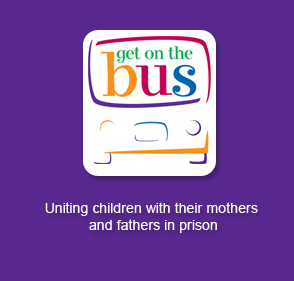Mother’s Day Behind Bars
Mother’s Day Behind Bars
 During the first week of May of each year, most Americans anticipate and plan for the one day that is set aside to honor the women who gave them life and cared for them while they were growing up — their mothers. The dictionary defines a “mother” as “a female parent” or “a woman in authority.” Unfortunately, that definition doesn’t really properly reflect the true nature of a mother.
During the first week of May of each year, most Americans anticipate and plan for the one day that is set aside to honor the women who gave them life and cared for them while they were growing up — their mothers. The dictionary defines a “mother” as “a female parent” or “a woman in authority.” Unfortunately, that definition doesn’t really properly reflect the true nature of a mother.
The first person you ever had a relationship with was your mother. That relationship began the moment you were conceived. You utilized her flesh and blood to survive and grow. While you were growing in her womb, you heard each and every one of her heartbeats. You heard her talk and sing and cry. You felt her pain and shared in her emotions. You were continually protected and nourished by her.
For most of us, it was the bond that developed prior to our birth that is still with us today. That bond is not easily broken. Yes, there are selfish (and even evil) mothers who intentionally break off that bond before (or after) their children are born, but that is the exception rather than the rule.
The special bond between a mother and her child applies not only to humans but also to most other creatures. We know we are opening ourselves up to the wrath of a mother when we go near a bear cub or disturb the nest of a bird.
So what happens to the bond between a mother and her child when the mother is sent away to prison?
About 15 years ago, while working with young female prisoners, most of whom were in prison for nonviolent drug-related offenses, Sister Suzanne Jabro, C.S.J., asked the prisoners what they needed. The majority of them said what they wanted most was to see their children. One prisoner told her, “Please help me. I can’t live without touching my child!”
After meeting with several female prisoners, Sister Jabro came to the following conclusion: “Nobody visits women in prison. Their men have left, and the children live with relatives who can’t drive, can’t afford the gas, or can’t manage a car full of kids.” That’s when Sister Jabro tapped into the resources of the Office of Restorative Justice for the Catholic Diocese of Los Angeles and started the “Get on the Bus” program.
In May of 2000, Sister Jabro arranged for a bus to take children from nine families to a state prison in Chowchilla, California. She later commented, “When we saw the kids on that first bus, we had a big shift in our consciousness. We knew it would be good for the mother; but that day we saw how much the children needed it. They were conflicted — you saw the joy and sorrow so mixed in the whole thing — but those moments of reunion, whether quiet or loud, were just electrifying and wonderful.”
This year, in cooperation with the California Department of Corrections and Rehabilitation and a number of churches, synagogues, and other agencies, the Get on the Bus program sponsored 48 buses. The buses took children from all over California to see their incarcerated mothers.
The children were allowed to spend four hours with their mothers before they were asked to say good-bye. Photographers were available to take pictures of the mothers and their children — one for every child and one for each of the mothers. On the way home, counselors were available on each of the buses to help the children deal with their mixed emotions.
The bond between a mother and her child runs very deep. Makes you really appreciate your own mother, doesn’t it?



1 Comment
Dear Harry and Georgette –
Great article. About two months ago, one of our Sisters came to Nazareth Living Center to give us a wonderful explanation of her work – in RESTORATIVE JUSTICE!! The Concept has caught on in many States; she works out of Kansas City, MO, and there is a beginning in St. Louis. As a young Sister, I was privileged to visit the girls 18 years and younger, on Sunday afternoons, in the Detention Home in St. Louis. Some of these girls were potential offenders as adults, and would probably be Mothers by then. Sad. Thank you for bringing the story to life. Love, Sister Roberta